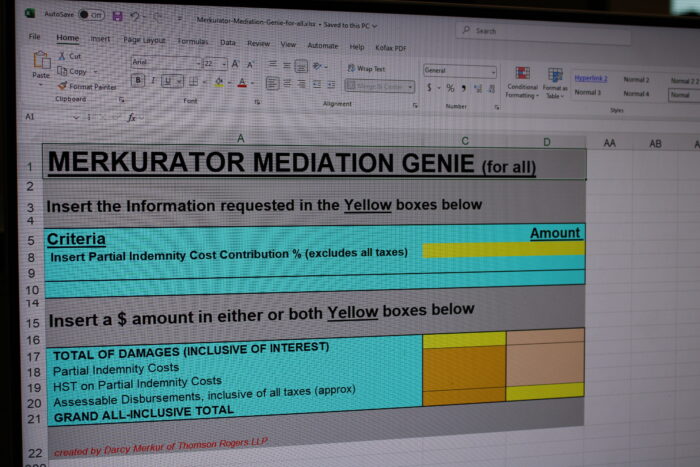Approved Services Received Pursuant To Approved Treatment And Assessments Plans Should Always Be Paid By Accident Benefit Insurers
Author(s): Darcy R. Merkur
April 19, 2021

Ontario car accident victims are entitled to reasonable and necessary treatment paid for by their accident benefit insurer, albeit subject to various limitations set out in the legislation.
To ensure that the accident benefit insurer is legally bound to pay for required treatment, healthcare providers must submit treatment and assessment plans (called OCF-18s) to the accident benefit insurer for pre-approval. Once the insurer approves the OCF-18 they have committed to paying for the treatment if it is in fact provided to the claimant.
The approval of an OCF-18 by the accident benefit insurer essentially forms a contractual relationship between the healthcare provider, the accident benefit insurer and the claimant, with the terms of the contract being that the insurer will pay the provider directly for the approved services if they are in fact provided.
Where the accident benefit insurer has approved services, they are responsible to pay for it!
Often, when an accident benefit claim is settled the insurer tries to hoist responsibility for payment of outstanding debts owed to treatment providers onto the claimant. When settling accident benefit claims, trauma lawyers must always push the insurer to remain responsible for debts owed to healthcare providers in relation to approved services because the trauma lawyer is not privy to the status of outstanding invoices and because doing so helps out the hard working valued healthcare providers who are otherwise in the uncomfortable position of having to collect from their injured claimant.
Since the June 1, 2016 amendments that merged the medical/rehabilitation fund with the attendant care fund, more and more insurers are trying to avoid responsibility for paying for approved services on the basis that the policy limits have been exhausted.
In my view, an accident benefit insurer should never be able to avoid responsibility for paying for approved services simply because they mismanaged the approval of plans to amounts that exceed the applicable policy limits.
Where a claimant has nearly exhausted their policy limits, efforts should be made to free up (vacate) funds from the approved total amounts. Often, over time, treatment and assessment plans are submitted but are not accessed in full for a variety of reasons including COVID-19 dynamics, group health benefit coverage, geographical changes, unexpected changes in health or need, etc. Taking steps to formally vacate these unused plans frees up money for the the insurer to approve additional treatment and assessment plans rather than deny it on the basis of the purported exhaustion of the policy.
Occasionally, some insurers accidentally approve plans over the limits and then try to say they are not responsible, but, when pressed, they will typically accept their legal obligation to pay for approved services despite the exhaustion of the policy in almost all circumstances, as they should, given the reliance by the provider on the approval (which is akin to a promise to pay).
At Thomson Rogers, we take great pride in making sure that healthcare providers who assist our clients are paid for their valuable services. Where a tort claim is available or where a catastrophic impairment claim is on the horizon, then there are often solutions to ensure that providers are paid for all of their services even when issues like this arise.
In circumstances where a catastrophic impairment claim is anticipated, OCF-18s should continue to be submitted even though they will be denied so that the claimant and their counsel are in a better position to demand that the accident benefit insurer pay for services received even after the denial (rather than relying on a protected account, for example).
At Thomson Rogers, we have spent decades assisting thousands of injured Ontario pedestrians and motorists. Thomson Rogers offers free consultations so please feel free to reach out to us at any time. We are here to help.
Darcy Merkur is a highly regarded Ontario trauma lawyer helping accident victims such as pedestrians, cyclists and motorists, who have sustained catastrophic injuries.
Darcy is the first lawyer in Canada to be qualified as a Certified Brain Injury Specialist by the Brain Injury Association of America. In addition, Darcy has been recognized as a Certified Specialist in Civil Litigation by the Law Society of Ontario, is listed in peer-reviewed publications – Lexpert® and The Best Lawyers™ in Canada, is ranked AV pre-eminent in Martindale-Hubbell ® and is a partner at Thomson Rogers, one of Canada’s Top 10 Personal Injury Law Firms as selected by Canadian Lawyer Magazine.
Darcy can be reached at 416-868-3176 or by EMAIL.
For Thomson Rogers updates please subscribe to our email list here.
Share this






